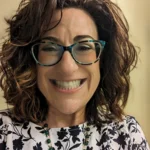Am I in Remission, Cured, or in Recovery from Cancer?

My surgery is done, radiation is complete, lymph nodes are clear, and there’s no evidence my breast cancer has spread. So, how do I describe it?
It’s been a year since I was diagnosed with breast cancer. I had a lumpectomy in January, and I finished radiation in April. Because my invasive ductal carcinoma was stage 1A and HER2-negative, I didn’t need chemotherapy. Because it is hormone-receptor-positive — estrogen and progesterone feed the tumor — I do need at least five years of estrogen-blocking therapy. For me, that means taking a little tamoxifen pill every morning (there are other estrogen-blocking medications and therapies).
If you were reading carefully, you may have noticed that I used both “was” and “is” to refer to my cancer. That wasn’t an accident — I’m just not sure how to think of or talk about it.
I am one of the lucky women whose cancer was completely removed, with no cancer cells found in my sentinel lymph nodes (the first nodes that the breast drains into, in the armpit area). There’s no reason to think that I still have any tumors growing anywhere.
In the back of my mind, though, is this statistic: As many as 30% of women diagnosed with early-stage breast cancer will ultimately develop metastatic breast cancer, in which cancer spreads to other parts of the body. Metastatic breast cancer is treatable but not curable, and most women who develop metastatic breast cancer have hormone-receptor-positive cancer. I also keep in mind what my oncologist told me about short-term and long-term survival rates for my specific type of cancer: the five-year survival rate is nearly 100%, but the 20-year survival rate is lower.
‘Have’ cancer or ‘Had’ cancer?
How, then, to think of my own situation? Am I cured? Am I in recovery? Am I in remission? I feel weird saying I “had” breast cancer and weird saying I “have” breast cancer. I’ve embraced the custom of saying I’ve completed “active” treatment. Tamoxifen, I feel, lies somewhere between treatment and prevention. Its job is to prevent any breast cancer cells from getting the estrogen that might help them grow. It’s considered a treatment, yet it’s also sometimes prescribed to reduce breast cancer risks for women at high risk. And, honestly, tamoxifen has its own side effects, so it doesn’t exactly feel like it’s not “active.”
I don’t think of myself as “cured.” I don’t know that I ever will. The risk of cancer returning will be looming over me for the rest of my life. I’ve never heard “remission” used for someone in my situation. It’s much more common with metastatic breast cancer, for instance. Even full remission, which implies no active disease (versus “remission” as having reduced or undetectable signs and symptoms), feels wrong. My cancer is too early-stage, too easy, too unencumbering for me to step into that world.
How professionals frame cancer survivorship
I asked Lara Traeger, Ph.D., a clinical psychologist at Sylvester Comprehensive Cancer Center, part of the University of Miami Health System, about how professionals help patients like me think about these issues. Remission, she agreed, “just doesn’t fit the survivorship experience.”
Dr. Traeger, who is also a clinical psychologist and associate professor of psychology at the University of Miami Miller School of Medicine, zeroed in on exactly what I have been feeling: “With a cancer like estrogen-receptor-positive breast cancer, the recurrence risk is very low, and yet this risk extends over 20 years. A breast cancer diagnosis also increases the risk of developing a second primary breast cancer. So, you can see how ‘remission’ doesn’t capture these complexities.”
Trying on ‘recovering from cancer’
The idea of “recovery” has some promise. Cancer of any kind is a journey, and the implication that I’m still dealing with cancer’s effects rings true for me (I’ll share more on this in a future column). Plus, this is a time of active surveillance — quarterly visits to my medical oncologist, a one-year post-surgery visit to my surgical oncologist, and breast imaging every six months.
Although I lived a fairly healthy life before my cancer diagnosis, I am making changes to further increase my survival likelihood and mitigate some of the tamoxifen’s side effects. This includes increasing the variety of plant-based foods I eat, adding strength training to my exercise routine and actually weighing myself to help me stay in a healthy weight range.
Definitely a breast cancer survivor
When telling someone about my cancer for the first time, I often circumvent all of my questions by simply saying I had outpatient surgery for early-stage breast cancer. I also learned, by asking members of Sylvester’s breast cancer survivorship team, that one becomes a breast cancer survivor on the day of diagnosis. This is a designation I’m comfortable with and matches the American Cancer Society’s language. Its website notes that “there are more than 4 million breast cancer survivors in the United States. This includes women still being treated and those who have completed treatment.”
“Breast cancer survivor” is how I’ve been referring to myself recently. Last month was Breast Cancer Awareness Month, and I had many opportunities to talk with other women about breast cancer risks and screening, as well as to share my story. In that context, “survivor” felt really right.
I felt in community with others on breast cancer journeys, no matter where they were. I also felt that “survivor” set me up as credible to advocate for women to understand their breast cancer risk and act on that knowledge and to make sure they have an annual mammogram (and ultrasound, if it’s indicated).
A space between ‘remission’ and ‘cured’
“It’s hard to know what to say when family and friends want to know if you are cured,” Dr. Traeger says. “You can tell them you are doing everything you can to make sure that you are, indeed, cured. Or you can be specific, saying that you had breast cancer, it was treated, and now they are taking endocrine therapy to reduce the risk of it coming back.”
This language, Dr. Traeger says, may not work for everyone. “I encourage patients to find the words that feel right to them,” she says.
Personally, I think “survivor” feels most comfortable, but I still don’t always use it. I imagine I’ll continue to fumble around for the right tense when talking about breast cancer. Maybe, though, in the space between “remission” and “cured,” I’m finding my place.

Rochelle Broder-Singer is a journalist with over two decades of experience in journalism and communications. In addition to her professional achievements, Rochelle is currently writing a series of articles for Sylvester to share her personal experiences as a breast cancer survivor.
Tags: Breast cancer survivorship, Cancer recovery journey, Hormone receptor-positive cancer, Remission vs. cured, Survivor experience, Sylvester Comprehensive Cancer Center
